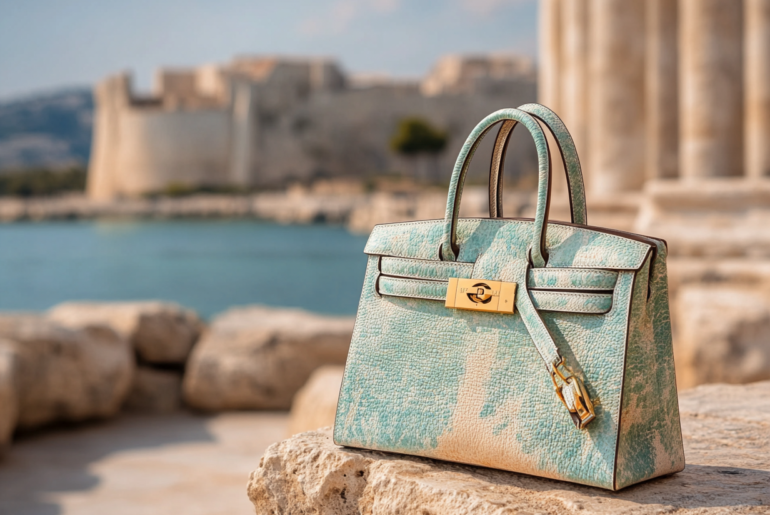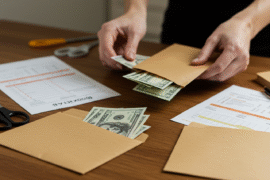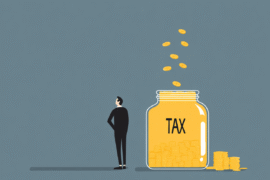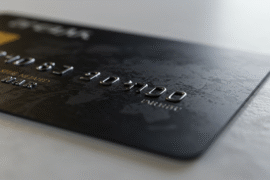This article may contain references to products or services from one or more of our advertisers or partners. We may receive compensation when you click on links to those products or services. Nonetheless, our opinions are our own.
The information presented in this article is accurate to the best of our knowledge at the time of publication. However, information is subject to change, and no guarantees are made about the continued accuracy or completeness of this content after its publication date.
- Key Highlights
- Introduction
- What Is the Luxury Tax?
- Why Luxury Tax Matters to High-Income Buyers
- How Luxury Tax Affects Consumer Behavior
- Long-Term Financial Impacts
- A Beginner’s Guide to Navigating Luxury Taxes
- Essential Resources to Consult
- Step-by-Step Process to Handle Luxury Tax
- Conclusion
- Frequently Asked Questions
- Recommended Reads
Key Highlights
- A luxury tax is placed on expensive, non-essential goods and services. It often targets items liked by rich people.
- These taxes are meant to bring in money for the government and help balance wealth in society.
- Typical luxury items taxed include expensive cars, yachts, private jets, jewelry, and designer goods.
- Some critics say that luxury taxes can cause job losses and push consumers to shop in places with lower taxes.
- Knowing local rules and ways to reduce taxes can help you make smart money choices.
Introduction
Buying luxury items can mean more than just spending money—it shows status and personal achievement. However, there is another cost that many buyers miss: the luxury tax. This tax is different from the regular sales tax you pay on everyday things. It focuses on expensive goods that are not essential and are often linked to wealth. Knowing how this tax works and how it affects your choices can help you make better decisions when buying high-end products.
What Is the Luxury Tax?
Have you ever seen how a fancy car or a diamond necklace can cost more than you thought? This is often due to a tax called a luxury tax.
Luxury taxes are extra fees that governments place on items considered very costly or unneeded. The goal is to make more money from those who have a lot of money. This tax only applies to items that go beyond a specific price limit. It usually includes things linked to rich lifestyles, not everyday necessities.
For example, a 10% luxury tax may apply to the part of a vehicle’s price that is above $50,000. If a car costs $60,000, only the $10,000 over that limit would get taxed. This means an extra $1,000 in tax. What counts as a “luxury item” can differ by area, but some usual examples include:
- Sports cars and special vehicles
- Yachts and private planes
- Expensive watches and jewelry
- Designer clothes and handbags
- Some kinds of real estate or electronics
These items are not seen as necessary. People usually buy them because they want to, not because they need to.
Why Luxury Tax Matters to High-Income Buyers
Luxury taxes mainly impact high-income people, who are more prone to buying things that fall under this tax. Experts often call these items positional goods, products whose worth is judged by how exclusive they are and how well they show wealth.
Luxury taxes can generate a lot of money while having a small effect on demand. Rich buyers usually do not change their buying habits much when prices go up, so these goods are good for focused taxes.
However, there are choices we need to think about. Some people say that too much tax can:
- Result in job losses in industries that depend on luxury sales.
- Promote shopping across borders or buying from other countries.
- Drive consumers to markets with lower taxes.
Decision-makers constantly struggle to find the right balance between government income and the downsides of taxing luxury items.
Voted "Best Overall Budgeting App" by Forbes and WSJ
Monarch Money helps you budget, track spending, set goals, and plan your financial future—all in one app.
Get 50% OFF your first year with code MONARCHVIP
How Luxury Tax Affects Consumer Behavior
Luxury taxes are meant for rich people. However, they can change how everyone shops and affect industry trends. Even those with high incomes might change their buying habits to avoid paying the tax or wait before buying things they don’t need.
Examples of Behavioral Shifts:
1. Delayed Purchases:
Buyers may hold off on buying expensive things like cars or watches. This often happens if they expect tax changes or feel uncertain about the economy.
2. Pre-Owned Alternatives:
Some people look to the resale market to avoid taxes on new products. Buying a certified pre-owned luxury car can keep the brand’s appeal without adding extra taxes.
In places with high luxury taxes, shoppers often go to areas with lower taxes. For instance, a person might purchase a yacht in another country to skip extra fees at home.
These answers show that even rich people look for value. They might change how they spend when prices go up.
Long-Term Financial Impacts
Luxury taxes might seem small in the big picture of managing money, but they can have long-term effects.
Reduced Net Spending Power:
Even for people who earn a lot, frequent luxury taxes can lower the money they have left to spend. This impacts how much they can put into investments or savings or spend freely.
Economic Redistribution and Use of Revenue:
Supporters believe that luxury taxes can help fund public services such as education, roads, or social programs. Opponents are concerned that depending too heavily on taxing wealthy people might hurt investments, which could slow down economic growth.
If you are thinking about your first luxury buy, like a car, handbag, or watch, it’s good to know how luxury taxes work. This knowledge can help you avoid surprises. Here is an easy way to understand them better.
Essential Resources to Consult
1. Tax Foundation:
A nonprofit that studies tax policy. It gives information about how luxury taxes impact different income groups.
Your local tax office usually has the latest lists of luxury items that are taxed. They also provide information about income limits and exemption policies.
2. Wayback Machine:
If you want to see how tax laws have changed over the years, the Wayback Machine can help. It shows old versions of official websites. This history can help you when looking into trends or making purchases.
Step-by-Step Process to Handle Luxury Tax
Step 1: Check if Your Purchase Is Affected by Luxury Tax
Make sure to see if your desired item is a luxury good according to the tax laws in your area. Taxes might apply based on:
- Purchase price
- Engine size (for cars)
- Value of items (e.g., gold, diamonds, or rare leather)
Some exceptions apply. For instance, a vehicle used for business may not be subject to luxury tax in specific places.
Step 2: Calculate the Potential Tax
After you confirm, calculate the tax using the correct rate and price limit. Here is an example to show how it works:
| Purchase Price | Luxury Tax Rate | Luxury Tax Amount | Final Cost |
|---|---|---|---|
| $60,000 | 10% | $1,000 | $61,000 |
| $80,000 | 10% | $3,000 | $83,000 |
| $120,000 | 10% | $7,000 | $127,000 |
Note: Tax rates and thresholds vary by region and item. Always consult your local tax authority or a financial advisor.
Conclusion
Luxury taxes are not only about putting a fee on costly items. They represent larger ideas about fairness, public money, and how people buy things. If you are buying your first designer bag or considering a big purchase like a luxury car, understanding these taxes can help you take care of your money. It will help you avoid surprises and shop better.
Frequently Asked Questions
What Items Are Typically Subject to Luxury Tax?
Luxury taxes usually apply to:
- Luxury cars
- Boats and yachts
- Private planes
- Designer handbags and watches
- Jewelry and fur coats
Luxury tax rules can change depending on where you are. So, it’s a good idea to look at the guidelines from your local tax office.
Are Menstrual Products Taxed as Luxury Items?
No. While some places used to charge normal sales tax on menstrual products, they are not considered luxury items. Many areas have decided to eliminate this tax completely.
How Can I Legally Avoid Paying Luxury Tax?
Legal options may include:
- Buying in places with lower taxes
- Choosing used or special models
- Taking advantage of business tax breaks (if possible)
- Planning purchases wisely during sales tax holidays or changes in rules
Talk to a licensed tax advisor for tailored advice.
Can Luxury Taxes Be Deducted on My Income Taxes?
In most cases, luxury taxes cannot be deducted for personal items. However, if a luxury item is only used for business, it can get certain deductions through business rules. Always talk to a tax expert to see if your purchase meets the requirements.
Do all states or countries have a luxury tax?
No, not all areas have a luxury tax. Some states or countries add extra sales tax on luxury items, while others do not. Tax rules change a lot depending on the place. So, looking at local laws before buying something expensive is important.
Are luxury taxes applied at the time of purchase?
Luxury taxes are often calculated and added when you buy something, like regular sales tax. The tax is based on the part of the price over the set limit. You usually see it as a different line on your receipt or bill.

Reviewed and edited by Albert Fang.
See a typo or want to suggest an edit/revision to the content? Use the contact us form to provide feedback.
At FangWallet, we value editorial integrity and open collaboration in curating quality content for readers to enjoy. Much appreciated for the assist.
Did you like our article and find it insightful? We encourage sharing the article link with family and friends to benefit as well - better yet, sharing on social media. Thank you for the support! 🍉
Article Title: Is That Bag Really Worth It? What Women Should Know About the Luxury Tax
https://fangwallet.com/2025/04/15/luxury-tax/The FangWallet Promise
FangWallet is an editorially independent resource - founded on breaking down challenging financial concepts for anyone to understand since 2014. While we adhere to editorial integrity, note that this post may contain references to products from our partners.
The FangWallet promise is always to have your best interest in mind and be transparent and honest about the financial picture.
Become an Insider

Subscribe to get a free daily budget planner printable to help get your money on track!
Make passive money the right way. No spam.
Editorial Disclaimer: The editorial content on this page is not provided by any of the companies mentioned. The opinions expressed here are the author's alone.
The content of this website is for informational purposes only and does not represent investment advice, or an offer or solicitation to buy or sell any security, investment, or product. Investors are encouraged to do their own due diligence, and, if necessary, consult professional advising before making any investment decisions. Investing involves a high degree of risk, and financial losses may occur including the potential loss of principal.
Source Citation References:
+ Inspo
There are no additional citations or references to note for this article at this time.












































